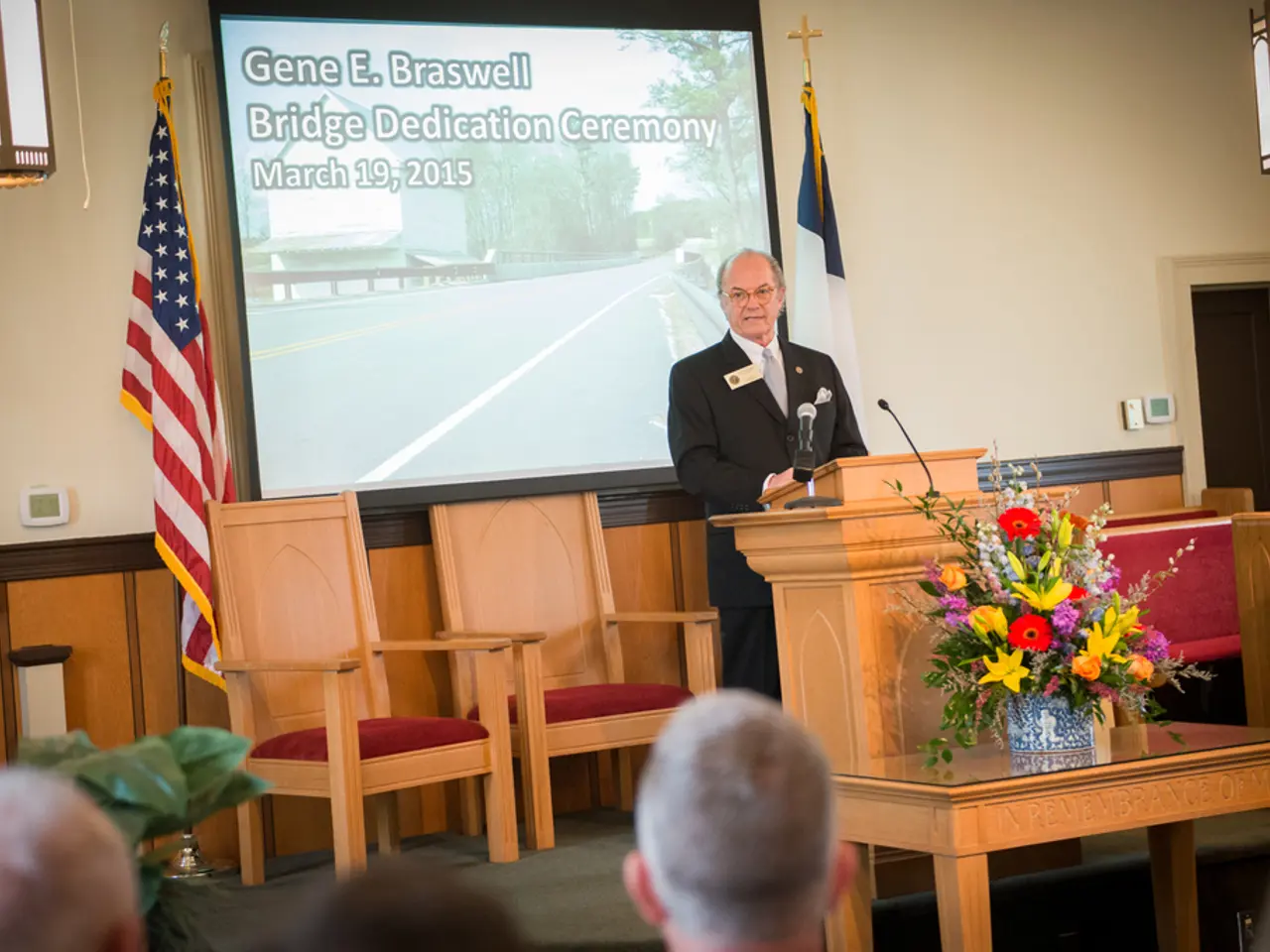President Trump Labeled as "Pseudo-President in Waiting"
Donald Trump's meteoric rise to power can be analysed through the lens of Daniel Boorstin's concept of the "pseudo-event". Boorstin, a historian, coined the term "pseudo-event" in 1962 to describe events staged primarily for media attention, often lacking real significance but creating a perception of importance.
Pseudo-Events in Trump's Career
Trump's success in reality TV, most notably with "The Apprentice", was a pseudo-event in itself. It created a false narrative of his business acumen and leadership skills, which he leveraged to build a public persona. This persona was crafted and amplified through media appearances, which are classic examples of pseudo-events designed to generate more media coverage.
Trump's use of Twitter and other social media platforms to disseminate information and create controversy can be seen as a form of pseudo-event creation. Each tweet or post could spark a media frenzy, even if the content lacked substance or was later proven false. This strategy allowed him to maintain a high profile and influence public discourse by manufacturing pseudo-events.
Trump's presidential campaign itself was filled with pseudo-events, such as rallies and controversial statements designed to capture media attention. These events often overshadowed policy discussions, creating an illusion of momentum and significance.
During his presidency, Trump would frequently announce policy initiatives that were later delayed or never implemented. These announcements served as pseudo-events, creating a perception of action without actual substance.
Impact on Democracy
Pseudo-events can shape public perception by creating a narrative that is more about image and media presence than actual substance. Trump's reliance on these events contributed to a political environment where image and media manipulation became critical factors in political ascendancy.
The frequent use of pseudo-events can lead to an erosion of trust in institutions and media, as the public struggles to discern between real and manufactured information. This has implications for democratic governance, where informed decision-making is crucial.
The World's Concern
The world is watching the US election with concern, as it is in uncharted electoral territory. Trump's controversial statements and actions have offended various groups, including Muslims, Mexicans, women, the pope, peaceful protesters, residents of Brussels, and reasonable opinion in general.
Trump's opposition to offshore wind farms led to a disagreement with the Scottish government, resulting in a falling out. His "ambassadorial" status in Scotland was not removed until December 2015, after he called for the banning of all Muslims from the US.
The election's outcome is uncertain, and no one can predict with certainty where the journey ends. However, one thing is clear: Trump's rise to power, while partially attributed to his adept use of pseudo-events, has implications for the future of democracy and the world at large.
References:
[1] Boorstin, D. J. (1962). The Image: A Guide to Pseudo-Events in America. Vintage Books.
[2] Crovitz, L. G. (2016). Trump's Pseudo-Events. Wall Street Journal.
[3] Rauch, J. H. (2016). The Triumph of the Image: Inside the New American Political Psychology. Harvard University Press.
- Trump's presidential campaign and decade-long career have showcased the power of pseudo-events, such as his reality TV show "The Apprentice" and controversial tweets, which created a false narrative and magnified his public persona, setting him apart in the realm of entertainment, politics, and general-news.
- Trump's adeptness in fabricating pseudo-events, designed to generate media attention, has contributed to an erosion of trust in institutions and the media, potentially impacting the democratic process by making image and media manipulation critical factors in political ascendancy, a topic that intertwines entertainment, politics, and general-news.








